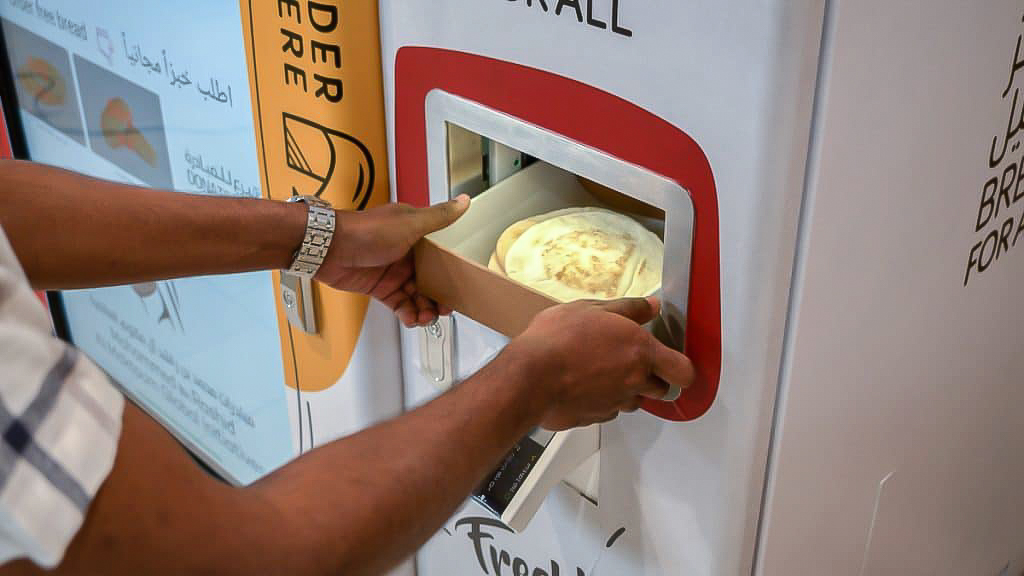Is Dubai’s “Free Bread” initiative really helping the poor?
The initiative’s progressive stride might not be all that it presents itself to be.
I was on Instagram the other day and stumbled upon the headline “Dubai offers free bread via vending machines for residents.” Naturally, I didn’t think much of it, but regardless, I clicked the link.
The article summarized the “Bread for All” initiative that offers free bread via vending machines across Dubai. This is part of ruler Sheikh Mohammed bin Rashid Al Maktoum’s “zero-hunger vision” within the United Arab Emirates (UAE). He recently remarked that “no one will go hungry in the land of the Emirates.” For context, this is amid continually increasing prices in the City of Skyscrapers—a global phenomenon that has spread rapidly in light of Russia’s invasion of Ukraine.
At first glance, this project appears selfless. However, it becomes clear the initiative is merely to promote the modernizing and advanced image of Dubai, but hides the ulterior motives associated with their plan.
For such a well-publicized endeavour, little information has been released on the details of the program. The “Bread for All” initiative is surprisingly vague.
According to an article by Arabian Business, the vending machines are located at “10 Aswaaq branches across Dubai.” However, a quick Google search clarified that this meant there are only 10 machines total across the large city. In accordance with the little transparency provided by the Emirati government, little is known regarding the budget and launch dates. For those curious, notice how the program is not even recognized on the UAE’s “Services A to Z” webpage. By making simple fact checks, it is clear this project is inflated by media sources.
Regardless, proximity to poor neighbourhoods would be most effective in serving the target audience. This, however, is not achieved. According to this map, the vending machines are located in retail supermarkets and malls—away from those in need.
As for the contents of the actual bread, the process is vague. The most detailed description provided by an official government media outlet is, “after a short wait, as the bread is being prepared, it will be dispensed from the machine.” It is unclear how the vending machines will be restocked, let alone what the ingredients are, or whether the machine itself makes bread or simply dispenses hot buns.
The lack of details for those in need, as well as the absence of long-term goals, signifies the lack of effort—and good intent—behind the project. It is clear, through a simple analysis of the program itself, that publicity of the UAE is the primary focus. This is especially apparent when looking at other programs that Dubai has released and their human rights violations.
A lack of sewage systems and inadequate access to drinking water, shelter, and food are all issues that Dubai’s administration avoids. However, in the midst of these overwhelming issues—as well as the increased costs of living due to Covid-19—the government routinely invests in high cost projects to attract foreign tourism. For instance, according to The Global and Mail “Abu Dhabi has provided about $25-billion in bailout funds for Dubai [….] funnelled to state-owned conglomerate Dubai World.” Just imagine, had that money went to the “Bread for All” initiative, there would certainly be more than 10 vending machines.
Ultimately, the “Bread for All” initiative is an important program, but it is deceptive. It is clear that the action serves as a disguise for Dubai’s human rights violations. As global citizens, we should be ready to recognize faulty or incomplete information from online sources—even from seemingly reliable media outlets. In this way, we can observe how apparently effective food initiatives can have glaring faults and be overwhelmingly inconsistent with the rest of a city’s policies.

